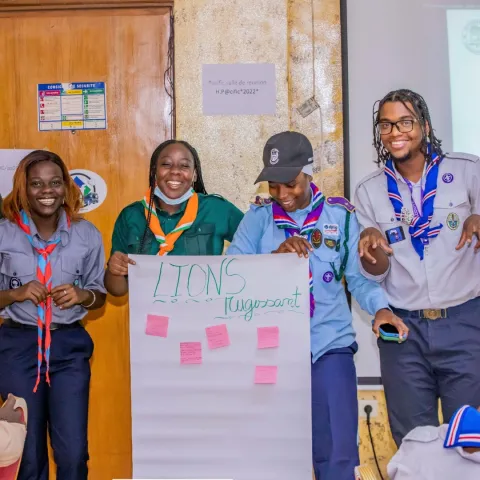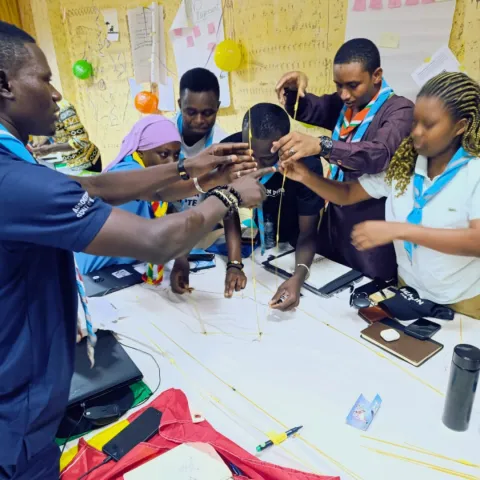ILT Program Burkina Faso: A Launchpad for Young Leaders to Build a Peaceful and Secure West Africa

The International Leadership Training (ILT) program was held from February 19th to 22nd in Ouagadougou. 29 young leaders aged between 18-26 from 14 National Scout Movements (NSOs) across West Africa namely Benin, Burkina Faso, Cape Verde, Côte d'Ivoire, Gambia, Ghana, Guinea Conakry, Guinea Bissau, Mali, Niger, Nigeria, Senegal, Sierra Leone, and Togo were equipped with essential skills in leadership, project planning, communication and peacebuilding. The training was part of the 15th West Africa Regional Conference and was centred on the theme: “Scouting in Africa: The Role and Place of Young People in Promoting Peace, Social Cohesion, and Security.”
The ILT is a transformative initiative designed to nurture youth leadership across Africa by equipping young leaders with critical skills and competencies in leadership, project management, communication, advocacy, and sustainable development. Through collaborative, activity-based learning, the program empowers young people with the tools they need to tackle tomorrow’s challenges, enabling them to drive meaningful change and contribute to the growth and progress of their communities.
Abdul Ganiu, one of the participants from Ghana shared his enthusiasm for the training :
Pacôme Koffi, the lead facilitator from Côte d'Ivoire and an ILT alumni, emphasised the program’s broader impact:

A defining moment of the ILT was the participants' remarkable ability to transcend language barriers, cultivating unity, collaboration, and creativity. This showcased the transformative power of diversity in driving innovative solutions, particularly for peace building in West Africa. By bridging cultural divides, they showcased how inclusive dialogue and teamwork can resolve conflicts and build social cohesion. Their cross-cultural efforts strengthened leadership skills and underscored youth’s critical role in promoting peace in a tense region. This experience emphasised the need to equip young leaders with tools to embrace diversity and advance sustainable peace in their communities and beyond.
As the training concluded, participants expressed a renewed commitment to return to their respective NSOs and develop concrete actions with fellow youth leaders. They plan to address pressing challenges in their communities, leveraging their newly acquired skills in leadership and community mobilisation.
Returning back to their countries, the young people carried with them not only newfound skills but also a shared vision for a more united, peaceful, and secure West Africa. The training came at a critical time, as the region faces escalating conflicts that disproportionately impact young people. Equipped with the tools and knowledge gained from the ILT, their resilience has been strengthened, enhancing their capacity to tackle the daily challenges they face in these difficult circumstances. The program ignited hope and excitement, empowering them to become catalysts for positive change in their communities and beyond.
This training was implemented as part of the Scouts for SDGs global initiative, thanks to the longstanding support of our partners. Scouts for SDGs enables young people with skills for life and empowers them to take the lead in community development efforts to support the achievement of the Sustainable Development Goals (SDGs).